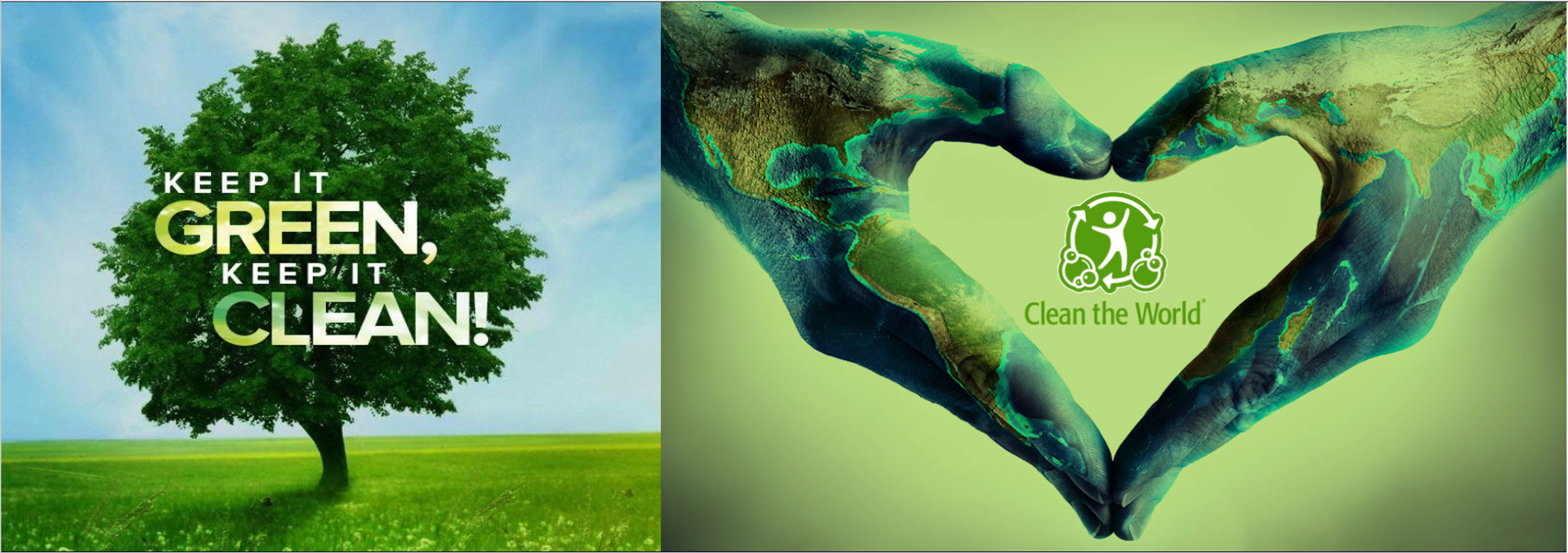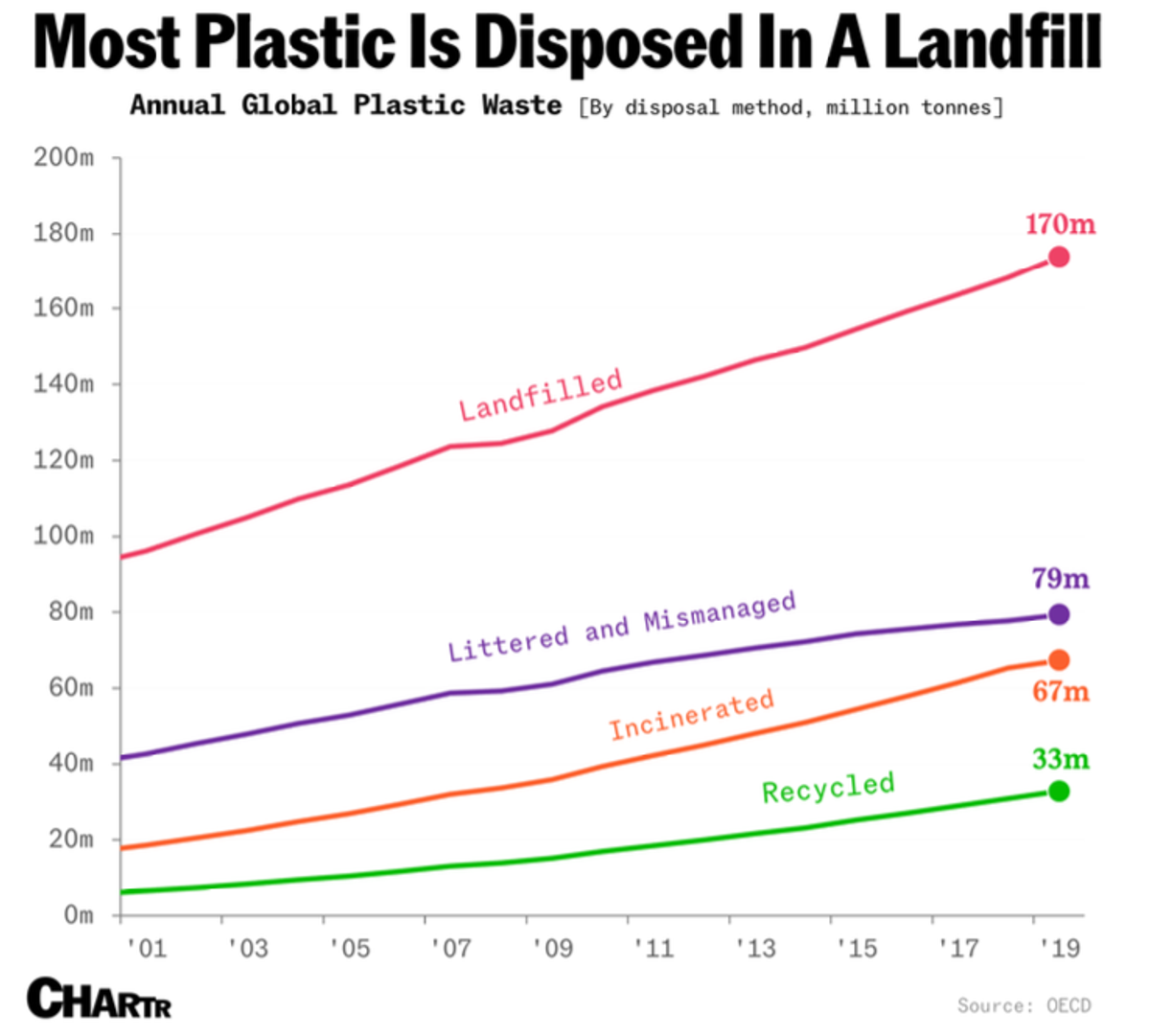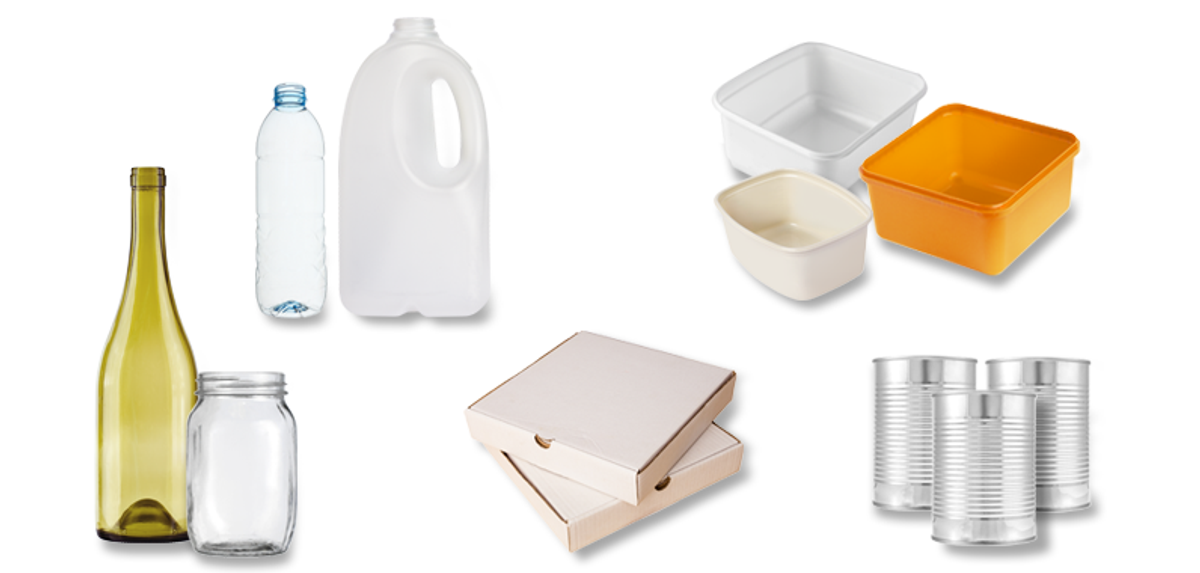The Green Page:

How much of the world’s plastic is recycled? Only a fraction.
Landfills still account for the majority of plastic disposal. Since its inception in 1970, EarthDay has grown into an international movement with the potential to seriously influence policy. This year’s theme is Planet vs. Plastics, and global leaders will convene in Canada later in the week to lay plans for what could be the most significant environmental deal since the 2015 Paris Agreement. Much of the discussion will focus on reducing plastic production and improving how we dispose of existing plastics.
The latest data from the OECD via OurWorld in Data shows that the majority of plastic waste is disposed of in landfills, while just 9% is typically recycled.
Along with industrial emissions, one of the most harmful effects of the more than 430 million tonnes of plastic that humanity produces yearly is its physical impact on aquatic environments.
With debris choking waterways, fears that microplastics consumed by marine species are accumulating up the food chain and affecting humans are compounded by the estimation that, at the current rate, there will be more plastic in the oceans by weight than fish by 2050.
Auckland - What You Can Put In Your Recycling
Items you can put in your roadside recycling bin
- Glass bottles and glass jars (empty and clean).
- Tin, steel and aluminium cans (empty and clean).
- Plastic bottles (grades 1, 2 and 5) from your kitchen, bathroom and laundry.
- Plastic food containers (grades 1, 2 and 5).
- Newspapers, magazines, and advertising mail.
- Paper, cardboard including empty pizza boxes, egg cartons and window envelopes.
Before you recycle
- Empty and rinse all recyclables and place them loose in your roadside recycling bin.
- Take lids off all bottles and containers and put them in your rubbish bin.
- Containers should be no larger than 4L
- Remove bubble wrap, polystyrene or plastic packaging from cardboard boxes – but tape and labels can remain.
- Items should be larger than 50mm x 50mm.
Items you cannot put in your recycling
- Bagged recycling or rubbish.
- Soft plastic packaging.
- Food waste.
- Clothing, shoes and bedding.
- Medical waste (including face masks).
- Garden waste.
- Building waste.
- Chemicals and hazardous waste.
- Nappies and sanitary products.
- Empty aerosol cans.
- Liquid paperboard (e.g. milk and juice cartons).
- Cookware, Pyrex ® and drinking glasses.
- Window glass and mirror glass.
- Light bulbs, fluorescent tubes and lamps, including Compact Fluorescent Lamps – they contain toxic mercury.
- Electronic and electrical items.
- Batteries – lithium batteries can explode and have been known to cause fires in recycling trucks.
- Gas bottles.
- Polystyrene packaging.
To dispose of the above items, and to search for items not on this list, see How to get rid of unwanted items.
For details on disposing of plastic grades 1-7, see Waste Nothing.



